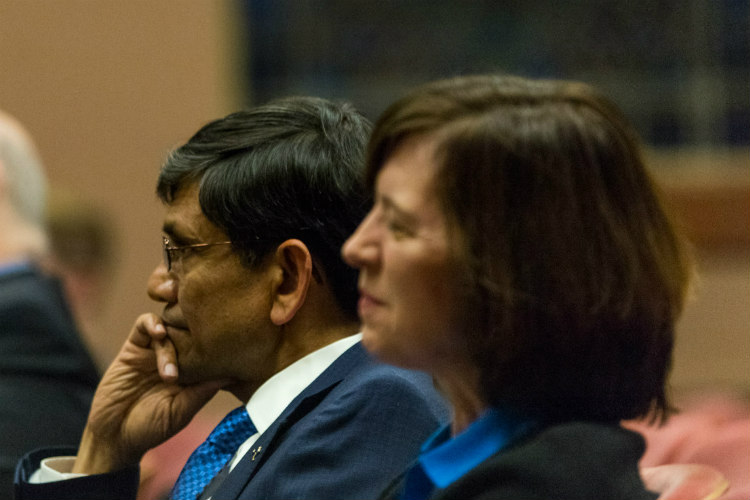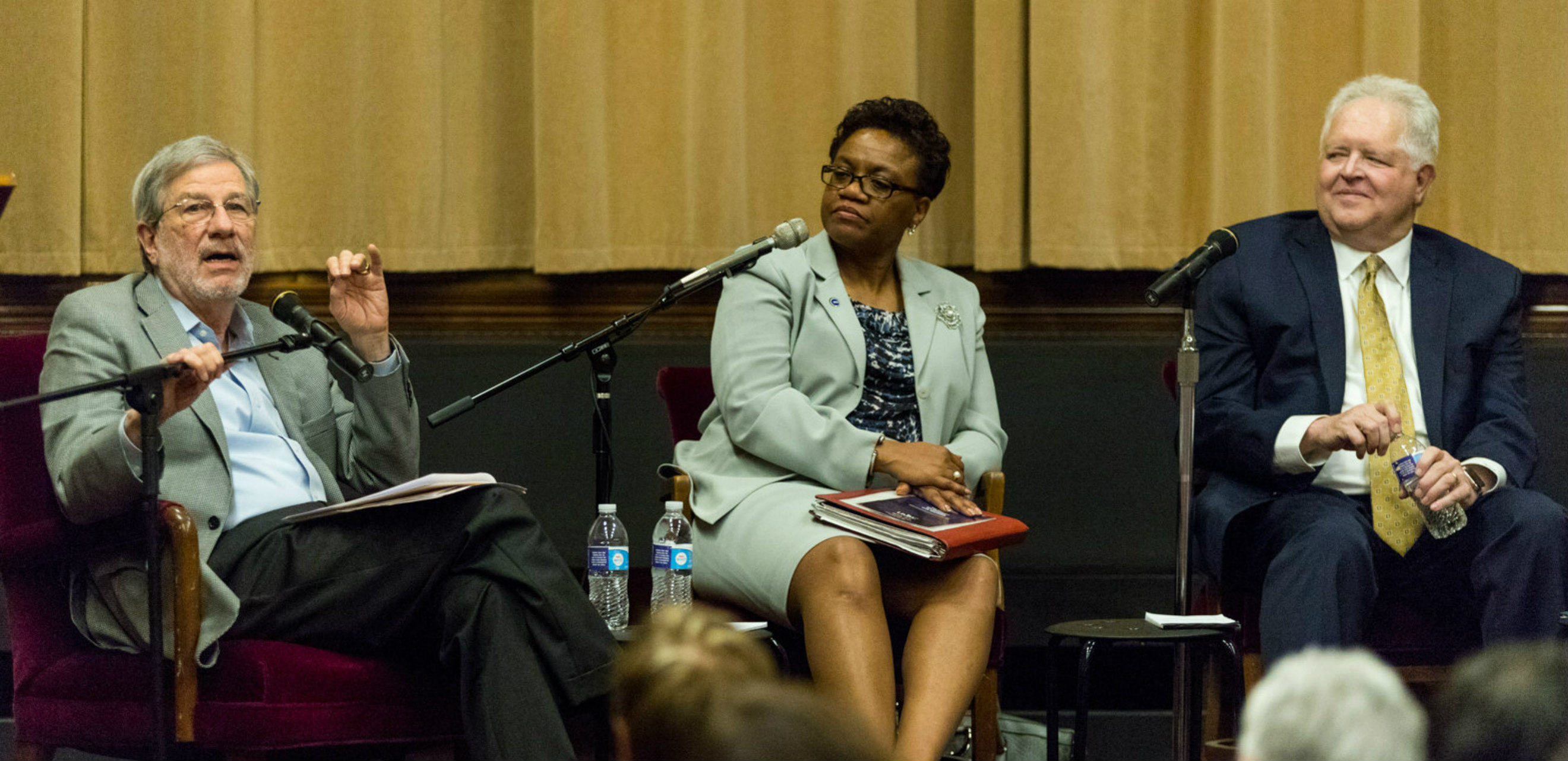At colleges across the country, students, faculty and campus leadership are struggling to balance ideals of free speech and respectful dialogue, ideals that at times come into conflict. A UMKC-sponsored panel discussion explored the depth and nuances of the topic.
The panel discussion concluded two days of events marking the formal investiture of Mauli Agrawal, Ph.D., as UMKC chancellor. The discussion was produced by American Public Square at Unity Temple on the Plaza, and sponsored by UMKC. The topic was “The Role and Responsibility of the University to Foster Civil Dialogue.”
Agrawal introduced the program, which featured panelists Kimberly Beatty, Ed.D., chancellor of Metropolitan Community College; Randall Hanna, Ed.D., J.D., dean of Florida State University Panama City; Michael Q. McShane, Ph.D., director of national research for EdChoice; and Margaret Talev, senior White House correspondent for Bloomberg News. The session was moderated by American Public Square founder and UMKC alumnus and faculty member Allan J. Katz, former U.S. Ambassador to Portugal.
“Freedom of speech is one of the most important freedoms we have. How do we interact with each other in a constructive fashion so that the discussion is not divisive?”

The lively discussion that followed demonstrated the complexity of the issue and stimulated thoughtful questions from the audience. Some excerpts:
“The whole point of the college experience is exposure to all sides” of controversial questions. – Beatty
“There are parallels between a university’s role and that of a news organization – to provide information, and to foster an environment where learning can take place and give people an opportunity to challenge their own assumptions.” – Talev
“A lot of universities have become more ideologically homogenous over time.” The problem is less about blatant suppression of opposing views than “a more subtle problem where certain questions just don’t get asked, certain topics don’t get discussed.” – McShane
“Those colleges that are trying to bar certain speakers from campus are only making the problem worse.” – Hanna
“The strategic thing to do with people who are offensive is to ignore them, and encourage others to ignore them.” – Talev
“Poison is determined by the dose. ‘Safetyism’ (protecting people from speech they consider offensive) has gone too far. Rather than think of it as either-or, we need to think of it as a continuum. We want people to be comfortable, but we also have to educate them on how to get along with each other.” – McShane
“We need to be honest about the fact that some people have figured out how to monetize outrage. That works because we click on it.” – McShane

